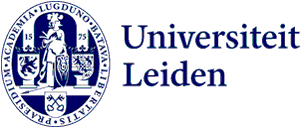
NWO grant for research about crossing language borders: ‘ We know very little about how multilingualism works outside Western societies’
Professor Felix Ameka and university lecturer Maria del Carmen Parafita Couta have received an NWO Open Competition grant together with Enoch Aboh (University of Amsterdam) to do research on ‘code-switching’: switching languages by multilinguals.
‘Humans have the fascinating ability to use distinct languages in the same conversation. Multilinguals can also integrate elements from their languages into a single utterance. This practice, known as code-switching, tends to be stigmatised in the European context, but is favoured in other parts of the world where multilingualism is the norm,’ Ameka explains. ‘Because of this, our project focuses on two countries, Benin and Belize , where the use of multiple languages is common practice.’
Using pupil dilation to understand language processing
The researchers will analyse changes in pupil dilation, which is an index of attentional effort. This will allow them to determine the extent to which mixing languages takes effort to process even among individuals living in communities where this practice is the norm.
Ameka: ‘We know very little about how multilingualism works outside Western societies. Our project will increase the empirical basis of our knowledge in two understudied multilingual locations. Our findings will enhance our understanding of structural, social, cultural, and cognitive aspects of code-switching.’
Collaboration between Leiden and Amsterdam
‘As a team, we’re looking forward to the collaboration between the Leiden and Amsterdam Language Centres. We’re also looking forward to having an impact on language in education policies and practices in both Belize and Benin. As a side effect, our project could have an influence on maintaining migrant languages in the Netherlands and beyond.’
